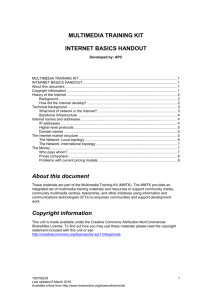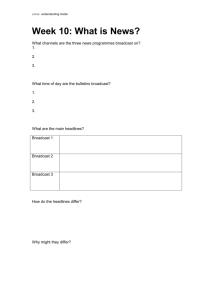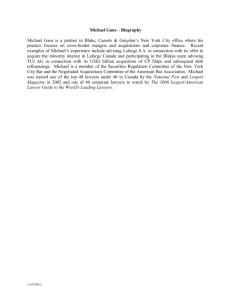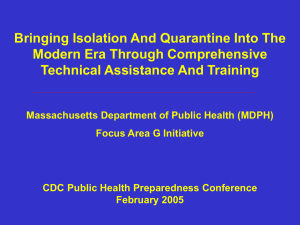Case study
advertisement
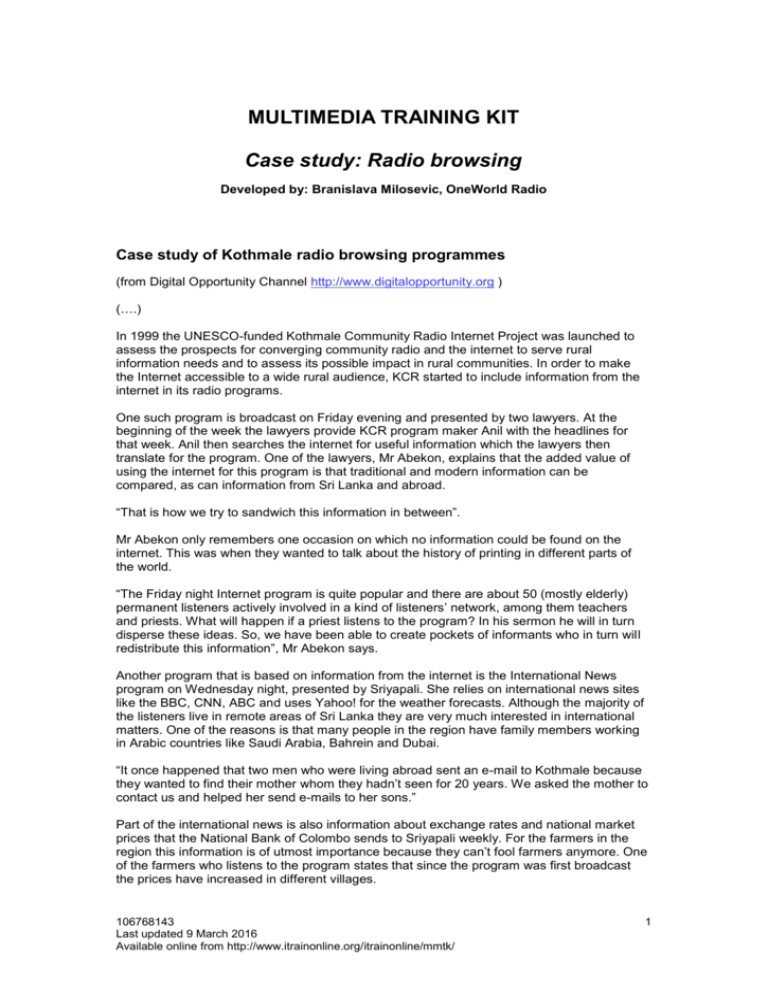
MULTIMEDIA TRAINING KIT Case study: Radio browsing Developed by: Branislava Milosevic, OneWorld Radio Case study of Kothmale radio browsing programmes (from Digital Opportunity Channel http://www.digitalopportunity.org ) (….) In 1999 the UNESCO-funded Kothmale Community Radio Internet Project was launched to assess the prospects for converging community radio and the internet to serve rural information needs and to assess its possible impact in rural communities. In order to make the Internet accessible to a wide rural audience, KCR started to include information from the internet in its radio programs. One such program is broadcast on Friday evening and presented by two lawyers. At the beginning of the week the lawyers provide KCR program maker Anil with the headlines for that week. Anil then searches the internet for useful information which the lawyers then translate for the program. One of the lawyers, Mr Abekon, explains that the added value of using the internet for this program is that traditional and modern information can be compared, as can information from Sri Lanka and abroad. “That is how we try to sandwich this information in between”. Mr Abekon only remembers one occasion on which no information could be found on the internet. This was when they wanted to talk about the history of printing in different parts of the world. “The Friday night Internet program is quite popular and there are about 50 (mostly elderly) permanent listeners actively involved in a kind of listeners’ network, among them teachers and priests. What will happen if a priest listens to the program? In his sermon he will in turn disperse these ideas. So, we have been able to create pockets of informants who in turn will redistribute this information”, Mr Abekon says. Another program that is based on information from the internet is the International News program on Wednesday night, presented by Sriyapali. She relies on international news sites like the BBC, CNN, ABC and uses Yahoo! for the weather forecasts. Although the majority of the listeners live in remote areas of Sri Lanka they are very much interested in international matters. One of the reasons is that many people in the region have family members working in Arabic countries like Saudi Arabia, Bahrein and Dubai. “It once happened that two men who were living abroad sent an e-mail to Kothmale because they wanted to find their mother whom they hadn’t seen for 20 years. We asked the mother to contact us and helped her send e-mails to her sons.” Part of the international news is also information about exchange rates and national market prices that the National Bank of Colombo sends to Sriyapali weekly. For the farmers in the region this information is of utmost importance because they can’t fool farmers anymore. One of the farmers who listens to the program states that since the program was first broadcast the prices have increased in different villages. 106768143 Last updated 9 March 2016 Available online from http://www.itrainonline.org/itrainonline/mmtk/ 1 Sriyapali gives another good example of the use of internet and radio: “One day we received 750 calls, because on that day exam results were published on the internet. We broadcast the results on the radio and informed people who called in by phone. Normally the results have to come from Colombo and that takes four days”. (….) [Please note that in this article radio browsing programme is described as Internet radio] To read the full case study about Kothmale community multimedia centre go to: http://www.digitalopportunity.org/article/view/72470 106768143 Last updated 9 March 2016 Available online from http://www.itrainonline.org/itrainonline/mmtk/ 2



